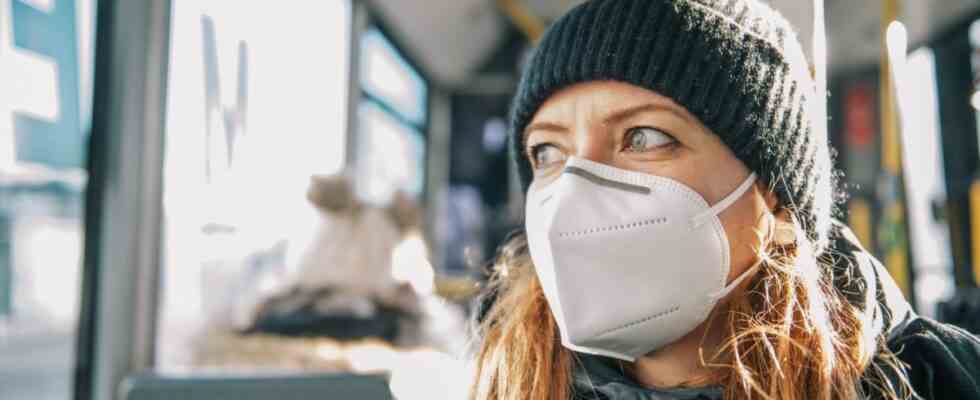In view of the high number of infections, the state government is fighting against the end of most of the corona restrictions in Bavaria. On Tuesday, Health Minister Klaus Holetschek (CSU) brought up the possibility of extending the transitional period during which the federal states can leave the current measures in force. According to the Federal Infection Protection Act, this period applies until April 2nd, after which all corona rules also apply in Bavaria. Bavaria would like to stick to stricter rules, especially when it comes to the mask requirement, which is being phased out in schools, shops and restaurants. He could only “appeal to the federal government that they sharpen it again” or “follow up” with the transition period, said Holetschek.
Meanwhile, the opposition sees the state government itself as responsible. “It’s not enough to lament about Berlin and not use the possible instruments that Bavaria still has in hand,” said Ruth Waldmann, health policy spokeswoman for the SPD parliamentary group. The background: The federal law gives the state parliaments the opportunity to define individual cities or districts as corona hotspots and to impose stricter protective measures there in the future.
The countries should also set the threshold for when a region is considered a hotspot. “It is clear to me that the Bavarian state government finds it inconvenient to present future measures to protect against infection to the state parliament. But the responsibility now lies in Bavaria,” said Waldmann. Minister Holetschek recommended she “stop whining and lumbering against Berlin and implement the new Infection Protection Act in Bavaria”.
According to reports, the state government is already examining the options that it still has according to the federal government’s specifications. When asked, however, the Minister of Health leaves open which hotspot criteria he can imagine. Holetschek considers it legally “contentious” whether Bavaria as an entire federal state could declare itself a hotspot.
Would he make Bavaria a nationwide hotspot if he could? The minister does not want to commit himself to this question either. Instead, he repeats his call for nationwide parameters. Katharina Schulze, leader of the Greens, finds this “pointing the finger at the federal government” tiresome. The state government must “finally tackle the issues that it can and must regulate itself”. This includes “a binding hotspot regulation for Bavaria”.
Restaurant Association makes no recommendation
While politicians are still arguing, shops and restaurants are faced with the question of whether they can set their own rules if the corona measures are removed after April 2nd. It would actually be possible via the domiciliary rights to continue to grant access only under rules such as the obligation to wear a mask or a 3-G proof. This was recently discussed in the large board of the Bavarian hotel and restaurant association Dehoga.
“If someone wants to do that, there’s nothing wrong with that,” says Dehoga’s state manager Thomas Geppert. However, it is up to you, the association will not make any recommendations. So far, nothing can be said about increased inquiries from Dehoga, but that may become apparent in the next few weeks. Geppert assumes that “across the board” the members will drop the rules if this becomes the official political decision.
This question also arises in retail. The Bavarian Trade Association (HBE) is currently preparing posters in two versions for shops. For those who exercise their domiciliary rights and continue to require a mask, or who at least want to ask their customers to put one on voluntarily. The former, believes HBE spokesman Bernd Ohlmann, will be the “exception”.
The second version, on the other hand, should be in demand. Access restrictions for people who have not been vaccinated or who have recovered have long since ceased to exist in retail, so after April 2nd it would only be a question of covering the mouth and nose. Feedback indicated that after April 2nd, certainly not all customers would “yell hooray and happily rip off the mask”. Incidentally, this also applies to many employees; Mention should also be made here of considerable sick leave due to the omicron wave. On the other hand, the introduction of the mask in retail has already proven to be negative for frequency.
According to Ohlmann, a third option could be that nothing is hung up on the front door – but then people wear a mask and a kind of group dynamic arises; at least as long as the incidence is high. Ohlmann puts it this way: “The mask is as popular as a root canal, but is seen by many as a certain necessity.”
On Tuesday, 5,232 beds were occupied by patients with corona infections across Bavaria. The intensive care units counted 540 corona cases. Both values were only slightly above those of the previous week, but Holetschek warned: “The normal stations fill up relatively quickly.” In addition, more and more nursing staff who are themselves infected with Corona are absent.

